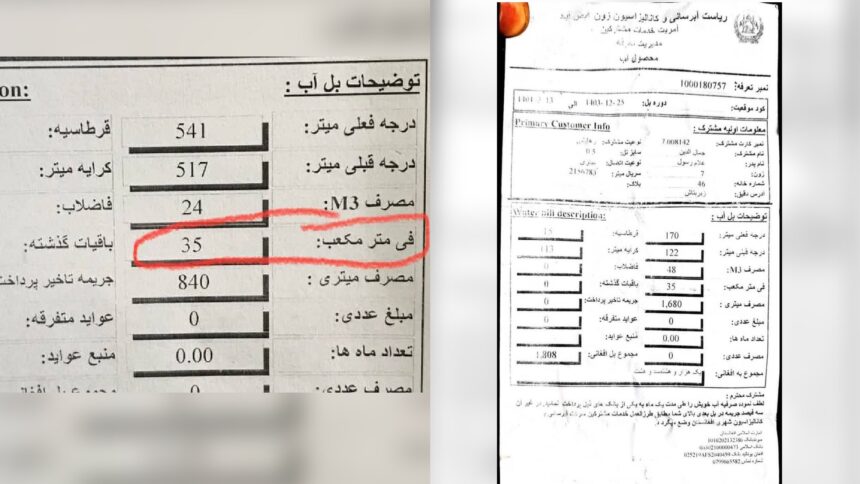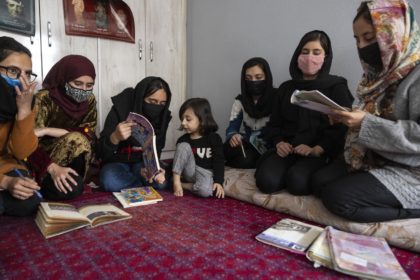RASC News Agency: A sudden and unjustified 40% increase in drinking water tariffs in Fayzabad, the capital of Badakhshan Province, has ignited widespread public outrage and renewed scrutiny of the Taliban’s systemic governance failures. Local residents have condemned the Taliban administration’s decision as both oppressive and economically irrational, decrying a stark absence of service improvements despite soaring costs. According to new utility bills issued by the Taliban-controlled Department of Water Supply, the price per cubic meter of potable water has surged from 25 to 35 Kabuli rupees. This abrupt hike, enforced without any public consultation, economic justification, or transparency, comes at a time when countless households are already struggling under the weight of pervasive unemployment, inflation, and economic collapse.
Paradoxically, Fayzabad is situated in one of Afghanistan’s most water-rich provinces. Yet, the city continues to grapple with an escalating water scarcity crisis. Numerous residents report enduring multiple consecutive days without access to safe drinking water, all while being forced to pay exorbitant fees for a service that is increasingly unreliable. Critics describe this situation as emblematic of the Taliban’s incompetent and predatory governance, which prioritizes exploitation over provision of basic needs. A local resident, who spoke on condition of anonymity citing security fears, told RASC: “The government should be putting food on the people’s tables, not squeezing them dry through endless tricks. Raising water prices while failing to supply adequate service is blatant injustice. Sometimes, the taps run dry for two or even three days in a row. How is this fair when the price keeps climbing?”
The water tariff increase has sparked a wave of criticism on social media platforms, with many users urging collective resistance against the Taliban’s arbitrary policies. Analysts suggest that these protests reveal a widening chasm between the Taliban regime and the Afghanistani population a regime that routinely excludes its citizens from economic decision-making, instead enforcing policies that serve narrow interests and consolidate authoritarian control. Further scrutiny reveals that the Taliban authorities in Fayzabad are not only charging for water consumption but also imposing a monthly meter rental fee of 113 Kabuli rupees. This fee is levied despite households having previously paid a one-time meter installation charge of 5,000 rupees, an arrangement residents denounce as a clear case of double-dipping and flagrant mismanagement of public resources.
Since the Taliban’s violent takeover in 2021 and the collapse of the republic, economic hardships for ordinary Afghanistanis have multiplied exponentially. The water tariff hike represents just one element in a series of relentless fiscal burdens, including increased taxes, sanitation fees, and transportation levies all imposed without any corresponding improvement in service delivery or infrastructure maintenance. Despite vocal demands from residents for reversal of these unjust measures, tangible reforms remain elusive. Experts assert that the Taliban’s governance over the past four years has been defined by ideological rigidity and power consolidation, rather than by efforts to meet the population’s basic humanitarian needs. The chronic neglect of essential services such as water supply, electricity, and healthcare starkly illustrates the regime’s failure to provide for its citizens.
This latest episode exposes the widening gap between the Taliban’s rhetoric and reality. As the regime prioritizes control and extraction over governance, ordinary Afghanistanis endure daily hardships characterized by scarcity, deprivation, and repression painting a bleak portrait of life under Taliban rule.






